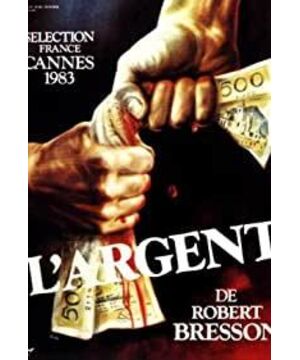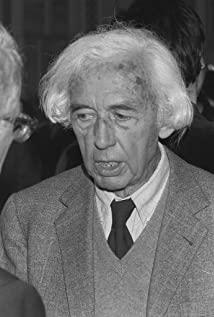Now that I think about it, this shock comes from the re-understanding of the "religious complex". I used to think that this is always due to some kind of deficiency, some kind of trust, giving a sympathetic understanding of the great suffering of life, and the starting point of all this It is out of "explanation" rather than the so-called "love", but "village pastor" makes people feel a kind of giving, a kind of greatness with content-raw material I easily utter this word.
Let's talk about "Money", a 1983 work, when Bresson was 83 years old. Speaking of style, he is too sophisticated. He is not worried about leaving the camera there, staring at the "thing", almost treating it as a living thing, and man, as the other of the thing, his position is just " It appears when you are close to the thing and when you have a relationship with the thing.
And the actions of all the characters, opening drawers, closing doors, raising a hoe, or raising a murderous axe, almost maintained the same frequency of soothing, even-lyrical. The same goes for the characters’ language and expressions. This weird rhythm is boldly used by the director and is built into the whole story structure. The effect is to make the viewer sit in a hurry and maintain a certain sense of solemnity. Deeply fine and deeply immersed in the film.
The advancement of the story is also very sophisticated, the clues are a bit polyphonic, but there is no external force push. Naturally, when the film progresses to three-quarters, it reaches an absolute climax. At that moment, I think it happened in the old. In the yard of the woman’s house, when she brought a large bowl of purple-red medicine to the young murderer and escaped (?), the camera followed the woman’s footsteps and walked towards a priest. The
woman said, "Father, leave. it "
Father:" I'll tell him to go, "
the woman:" no, let me handle it, you go, begging you, "
the priest:"!! you do not know him, you're crazy stupid "
Then, the camera staring at the bowl of medicine suddenly shook violently—the priest actually waved his hand at the woman—I hardly had the courage to rewatch this second, although there was no such evil punch in the camera—but It is this violent flash that condenses the unspoken evil that runs through the entire film: the evil of money, the evil added to it by human nature, and the "religious evil" that the "priest" wields to the real good, through With the strength of this punch, the apparent and deep-seated appeals of the film have been completely opened up.
The next shot immediately cut to the woman’s face (what a clean master stroke!), she did not flinch or panic, she was still the firmness and tranquility she was accustomed to from the beginning, she did not feel humiliated, let alone added the slightest Emotional tolerance and resistance, she doesn't reveal anything, but she is in absolute goodness.
But what a powerful force this is! At this moment in the movie, I was strongly shocked, or to say, sublimated.
View more about L'Argent reviews







